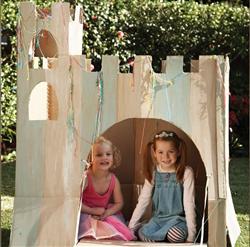Learning Doesn’t Stop at the Classroom Door
By Laura Simon
Summer break is already almost gone. How is that possible? Is it already time to start supervising approximately three-thousand homework sheets, countless eye rolls, and too many tears?
Now, who wants to talk about supporting the learning process at home?
Here’s the thing: you and your kids fight hard for the academic progress they make, but learning needs to happen outside the classroom, too. Fortunately, you don’t have to spend your weekends and evenings poring through extra worksheets just to support what the teacher is doing.
This blog is the second in a series about creative ways to keep kids learning when they aren’t in school. If you’d like to read the first part, you can click HERE. Otherwise, let’s look at some more real-life learning opportunities.
One important way to support your kids academically is to work with them. Academic success is all about persevering through difficulty, so teach them to work hard. Put them in charge of mowing the lawn every week; let them paint the fence; give them the jobs you dread doing (but don’t let them know that). If you don’t have anything around the house, go with them to volunteer for a charity. Every time they come home dirty and sweaty and sore, they develop grit…the same grit they need to survive high school calculus. If they have a job outside the home, don’t give them a pass on chores around the house; after all, they’ll be in charge of doing both when they’re adults.
But don’t just work. Play with them, too. All kids – even teenagers – learn through play. Before you take them to Six Flags, read up on roller coaster design. Play strategy games like Chess. Learn a new card game together. Research the city they’ll be visiting for that lacrosse tournament. In addition to growing together as a family, you’ll be keeping their minds sharp for school.
Don’t forget to use your local resources. Yes, hands-on science museums are fun, but there’s also a lot to learn from the exhibits. Next time you take the kids, stop to read the signage in each exhibit and talk about it. Stalk museum websites for special events, and stop when you see a group of employees doing demonstrations. The Triad has a wealth of history and culture available to families. Get out and visit it! You don’t have to be experts on any of this either; what a great example you’re setting when you learn alongside your kids!
Turn off the electronics and engage. This goes for both parents and children. I’ll be the first to confess that I miss my kids’ questions when I’m checking my phone. Technology can be good, but it has to be controlled. Don’t be afraid to set strict parameters so that your kids have to find other ways to occupy their minds, and so that you are mentally present to help them. Model the habits you want to see in your kids; put the phone away and read a book. Carry on a conversation. Play a game. Be bored. Boredom is a good thing; it encourages creativity.
Finally, read books together. Everyone talks about how important it is to read to young children, but don’t stop your literary journey with your kids just because they can read on their own. If your kids have reading assignments for school, grab a copy of the books and read them. You can also choose a book together. Talk about what you’ve read; make connections with the reading and share them with your kids. Ponder the questions you have and the predictions you’re making. Let your kids see you react to the ending and listen to their reactions. If you want some help understanding what this looks like, consider reading The Seven Keys to Comprehension by Susan Zimmermann and Chryse Hutchins; they do an amazing job of modeling how to talk about books with kids at any age.
You can do this. All of the above suggestions will take time; cooking a meal with my kids takes three times as long as doing it myself. And you’ll need patience for sure; there’s an unwritten code that kids have to sigh loudly and act like you are ruining their lives at all times. But I can promise they’ll go to school smarter and better equipped for the year ahead. And when they’re twenty-five and they know how to make dinner and live on a budget, they might even thank you.
Want to see more blogs like this and get notifications on local events and happenings? Subscribe to our free weekly newsletters here.







